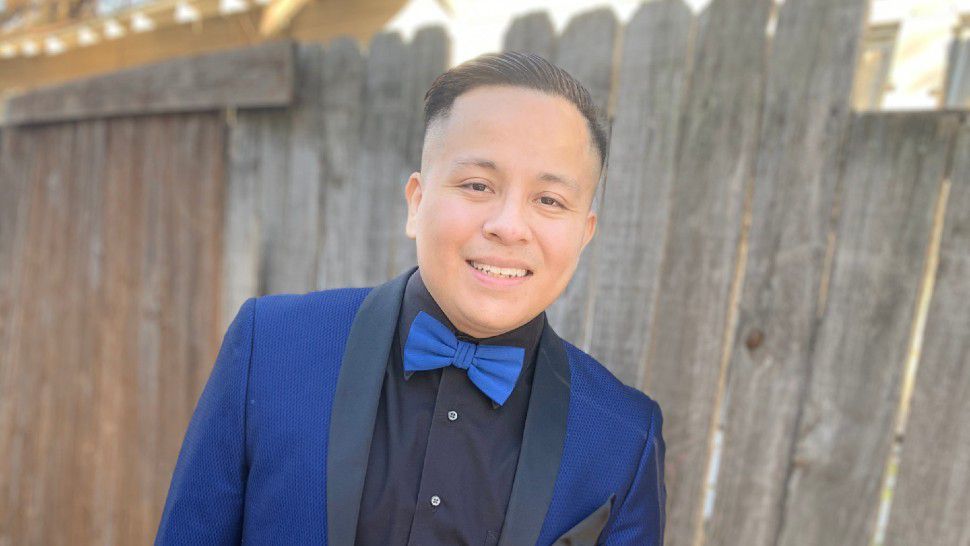DALLAS – Josue Lucas is always on the move. The 30-year-old native of León, Mexico, owns and operates Josh Events – a tuxedo and quinceañera rental retailer based in Oak Cliff – and he works as a choreographer in Dallas. On a recent phone call, he beamed enthusiasm over the Supreme Court’s decision to reject the Trump administration’s assertion that the Deferred Action for Childhood Arrivals program was illegal. For Lucas and other Dreamers, the court’s decision means he can’t be forced to leave the city he’s called home for most of his life – at least for now.
The East Dallas resident has been a Dreamer since 2012, when the program was signed into law by President Obama. His parents, who started the business he now runs, were deported 10 years ago. Having the protection of DACA meant Lucas wouldn’t suffer his parents' fate.
“I’m truly excited about it,” he said of Thursday's ruling. “As a DACA recipient, it’s a blessing to hear that we’re still fighting the good fight." The program, he continued, “makes a huge difference in your life. You feel more secure walking and driving around without the fear of being pulled over or worrying about immigration [officers]. It’s just good to have that Texas driver's license – a valid ID.”
The DACA Issue Is Far From Resolved
In a 5-4 ruling that affects more than 650,000 immigrants who were brought to the country as children, the high court said the administration didn’t provide sufficient reasons for canceling DACA. For many observers, the decision represents one of the biggest legal defeats of President Trump’s time in office, and in the middle of an election year, in which immigration figures to be a political hot potato once again.
The court’s decision doesn’t mean the issue is settled. Rocio Martinez, an immigration attorney at the Fort Worth-based Law Office of Francisco Hernandez, said that the ruling means the administration's attempt to rescind DACA was arbitrary and capricious.
“Their legal reasoning was not enough to meet the burden they had to meet in order to rescind it,” she said. “It doesn’t mean it’s protected forever. It doesn’t mean they can’t rescind it in the future. It doesn’t mean that DACA itself is a legal program."
“Two things can happen,” she continued. "[The Trump administration] can try to rescind [DACA] again with different logic this time and meet their burden, and DACA could definitely terminate –– in which case you’d expect Congress to step in and do the right thing. Or, they could leave it as is, and if Trump wins reelection, they try again.”
Lucas is cautiously optimistic about DACA’s staying power. Though the program, he said, he was able to carve out his place in the community. He said he just wants other people like him to have the same opportunity.
“I am nervous because this issue will determine our future,” he said. “I think at the end of the day, as a DACA recipient, I’ve learned never to give up and fight no matter what. It’s going to be whatever God wants it to be. It’s in God’s hands”
In Austin, Texas Attorney General Ken Paxton, a Republican, said he was disappointed by the Supreme Court decision. Paxton led the charge, both in Texas and nationally, in opposing the program. He was also among the most vocal critics of an initiative called Deferred Action for Parents of Americans, or DAPA, which would have covered 4 million other immigrants.
“We are disappointed with today’s SCOTUS decision, but it does not resolve the underlying issue that President Obama’s original executive order exceeded his constitutional authority,” he said in a statement. “We look forward to continuing litigating that issue in our case now pending in the Southern District of Texas.”
The Future of DACA
In addition to his two jobs, Lucas is also a volunteer for Jolt Action, the largest Latino civic engagement group in Texas. He sits on the nonprofit’s advisory board for Poder Quince, an initiative to raise community awareness at quinceañeras around the state. Lucas and others understand that the most likely way to make DACA permanent is through voting out politicians who oppose the initiative.
“It’s important to me because my parents did get deported,” he said. “I’m grateful. I feel like my past has put me where I am at the moment. It’s made me a stronger person and braver, and taught me never to give up.”
Lee Salvidar, president of League of United Latin American Citizens district 21, based in Fort Worth, said he applauded the Supreme Court’s ruling, but he understands that the coming election will ultimately decide the fate of the Dreamers.
“Right now, Trump has a hard road ahead to be reelected,” he said. “This is the most organized that I’ve ever seen the black, brown, and white coalitions and caucuses that we’ve put together. I’m not even talking about Texas. I’m talking about all over the country.
“I’m looking forward to seeing real change in my lifetime,” he continued. “And the DACA people, the kids, they are going to take it from there.”
For Dreamers like Lucas, the recent turn of events gives him and others a chance to catch their breath. He can continue to work and build on the life his parents envisioned for him.
“I enjoy what I do, and I love my job,” he said. “I enjoy meeting new people and hearing their stories.
“Immigrant parents with their wings cut still teach us how to fly, and the sky's the limit,” he said. “There’s no limit to what we’re capable of doing.”
